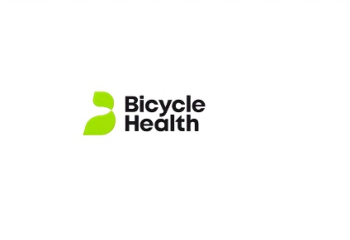More About Rehabs with Medication-Assisted Treatment
Medication-assisted treatment (MAT) uses specific prescription medications to help with withdrawals and cravings for alcohol and opioids. Many programs offer or require counseling and therapy, too, so patients address both the biological and psychological aspects of addiction. Someone getting treatment for alcohol or opioid addiction may first encounter MAT during detox, since medications like methadone can ease uncomfortable and possibly dangerous withdrawal symptoms.
After detox and initial treatment, MAT can reduce cravings and lower the pleasurable effects of alcohol and opioids to support those in recovery. One medication, disulfiram, even causes unpleasant reactions to alcohol should someone drink while taking it.
MAT can be a crucial part of recovery, both for immediate safety reasons and in maintaining sobriety long-term. It’s not the right fit for everyone, and that’s okay. It’s simply one of many options available to help you on your journey.
Medications Used in MAT
MAT generally treats either alcohol or opioid use disorder, but one option can help with both.
Alcohol MAT:
- Disulfiram (causes unpleasant reactions to alcohol)
- Acamprosate (reduces cravings for alcohol)
Opioid MAT:
- Methadone (reduces withdrawal symptoms and cravings)
- Buprenorphine (also reduces cravings)
Alcohol and Opioid MAT:
- Naltrexone (reduces cravings)
How Do You Get MAT?
MAT clinics distribute MAT medications. Rehabs may prescribe and distribute MAT too, especially if they provide detox. Some outpatient programs may also have MAT services for those in alcohol or opioid addiction recovery.
MAT is prescribed by a psychiatrist, a medical doctor, or, in some cases, a nurse practitioner. You don’t need daily trips to a clinic for all MAT prescriptions; buprenorphine, for example, you can pick up from a pharmacy and monitor your own use.
At outpatient MAT clinics, you typically go daily to get your approved dose. Staff monitor the process to ensure you’re taking the medication and to check in, providing support if needed. Some MAT medications can be used improperly (to achieve a ‘high’ similar to opioids), which is why monitoring can be part of the process.
Risks of MAT
Those undergoing MAT risk stigmatization, as some argue against its legitimacy as a treatment option. MAT medications can come with adverse side effects that providers usually can’t predict, along with the slight, but present, potential of addiction. Often, MAT during detox poses few risks because it’s so short-term.
Your prescriber or treatment team can help you decide if MAT is right for you. Clue in your support system, too, especially if you’ll need help with rides or other scheduling-related aspects.
Benefits of MAT
One of the most prominent benefits of MAT is its ability to help people stay in recovery—essentially saving lives. It can also be crucial in making withdrawals safer and more tolerable, whether symptoms are severe and life-threatening or just uncomfortable. MAT supports treatment retention too, which means people stay in treatment once they start. It also reduces the likelihood of overdosing.
Questions to Ask Your Provider About MAT
If you’re looking to start MAT, you can contact an MAT clinic near you or attend a residential addiction treatment program with MAT. Staff at either option can answer questions and overview the process in an initial assessment. You can also ask your primary care provider (PCP) about MAT. When talking to a professional, consider asking:
- Why might MAT be a good option for me?
- What risks are there?
- What type of MAT would best fit my needs?
- What are possible side effects?
- How long would I be on the medication?
- How would I get the medication?














































































































